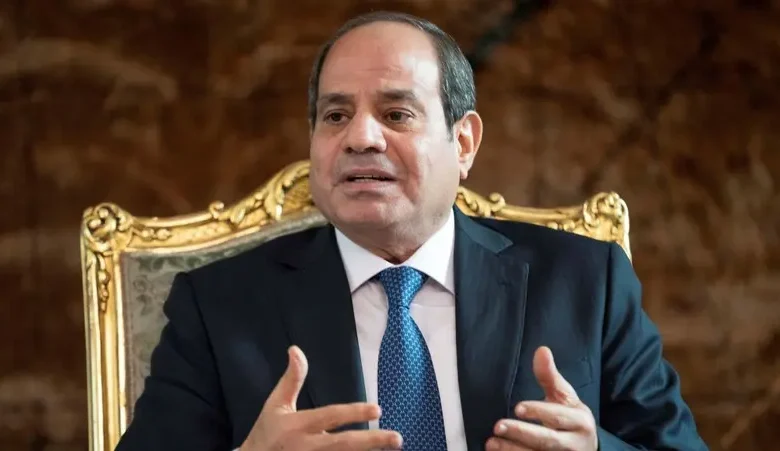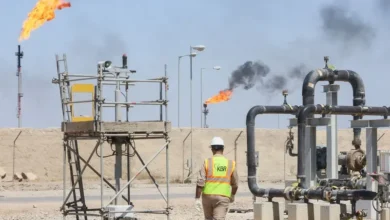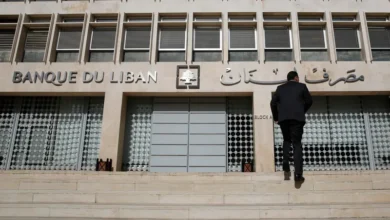Al-Sisi declares dollar crisis as a recurrent problem for Egypt’s economy

In a speech commemorating Egypt’s 72nd Police Day, President Abdel Fattah al-Sisi on Wednesday highlighted the ongoing challenges Egypt faces with the currency crisis and fluctuation of the Egyptian pound compared to the dollar, a recurrent issue impacting the nation’s economy.
President al-Sisi explained that the dollar has consistently been a problem for Egypt, primarily because the state incurs expenses in dollars for services, which are then sold to citizens in Egyptian pounds. This disparity, he noted, has been a recurring issue every few years, affecting the country’s financial stability.
During his speech, al-Sisi revealed that the government is actively working on a vision to address the dollar crisis. Egypt currently faces a foreign currency scarcity, compounded by high levels of foreign debt. The situation has been exacerbated by the war in the Gaza Strip, which poses a threat to tourism bookings and natural gas imports. The recent attacks on ships in the Red Sea have further complicated matters.
The president emphasized the financial burdens Egypt endures, including the cost of importing basic goods and fuel, which amounts to about two billion dollars per month, in addition to another billion dollars for the gas needed to operate power plants. He also reflected on the significant economic losses Egypt suffered from 2011 to 2013, estimating a total loss of 450 billion dollars due to events in that period and an additional 120 billion pounds in the fight against terrorism.
Acknowledging the current economic hardships and the resilience of the Egyptian people, al-Sisi expressed his respect and appreciation for their endurance amid these challenges. He noted that the complexity of the international and regional circumstances has imposed major economic challenges on Egypt.
The country is currently grappling with a severe shortage of dollar liquidity and unprecedented fluctuations in the dollar exchange rate in the parallel market, where the dollar’s value has reached nearly double the official bank rate, exceeding 60 Egyptian pounds.
In terms of solutions, the Egyptian leader stressed that while the crisis has viable solutions, these depend on collective efforts and national solidarity. He reiterated the importance of a deeper national dialogue on the economy and emphasized his respect for the Egyptian people, acknowledging their struggles and the need for unity in overcoming these economic hurdles.
IMF agreement and potential further devaluation of the Egyptian pound
Egypt’s financial markets are currently on alert as negotiations are underway in Cairo with a delegation from the International Monetary Fund (IMF) to discuss a potential $3 billion loan and a comprehensive program of economic reforms. The IMF’s conditions for the loan reportedly include the possible floating of the Egyptian pound and the implementation of a stringent monetary policy.
An IMF spokesperson confirmed on January 20 that members of the fund are present in Cairo to negotiate the terms of the loan and the associated reform program. The discussions are part of the IMF’s broader engagement with Egypt, including an annual review of the region conducted by Jihad Azour, Director of the Middle East and Central Asia Department at the IMF. Azour also visited Cairo during the week to meet with Egyptian authorities and stakeholders in the region.
In a recent interview with Al Arabiya Business, economic expert Ali Metwally expressed optimism about the negotiations’ potential success. He anticipates that the loan amount could increase to $5 billion, with a likelihood of the Egyptian pound being floated in either the current or the upcoming quarter. Metwally highlighted the IMF’s willingness to increase the loan as a positive sign, acknowledging the difficult period Egypt and the region are currently facing.
Metwally further elaborated on Egypt’s increasing financing needs, estimated at about $14 billion for this year, compared to approximately $12 billion last year. He noted that this figure does not account for any renewed deposits from Gulf countries, which bolstered Egypt’s finances last year.
The discussions with the IMF are seen as crucial for Egypt’s economic stability and its ability to navigate the challenges ahead. The potential loan and reform program are expected to play a pivotal role in shaping the country’s economic trajectory in the coming years.
Economists widely anticipate another devaluation of the Egyptian pound – marking the fourth since early 2022 – in the first quarter of this year. The ongoing economic difficulties highlight the urgency of Egypt’s efforts to stabilize and strengthen its financial position in the face of mounting challenges.
Egypt’s economic challenges amid Red Sea crisis
In his speech, al-Sisi expressed concern over the impact of the ongoing tensions in the Red Sea on Egypt’s economy. The situation has already started to affect the country, as evidenced by the reported decline in Suez Canal revenues.
Earlier this month, the head of the Suez Canal Authority disclosed that in the first 11 days of January, canal revenues fell by 40 percent. This drop is significant, considering that the fiscal year ending June 30 last year saw the canal achieve record revenues of $8.76 billion for Egypt, with an additional $2.40 billion generated in the third quarter.
A separate report by credit ratings agency Moody’s addressed the consequences of the Red Sea attacks on Egypt, highlighting the potential reduction in current account revenues through the Suez Canal Authority. While Moody’s does not anticipate a major impact on Egypt’s financial accounts for the current fiscal year ending in June, the effects are expected to intensify if the blockade persists.
The government’s reliance on Suez Canal Authority’s revenues is significant, receiving approximately 60 percent to 70 percent of these earnings. The revenue from the canal is projected to constitute about 9 percent of the government’s revenues for the current fiscal year. Therefore, any prolonged disruption in the Red Sea could have substantial implications for Egypt’s economy, particularly in light of its ongoing financial challenges.
Egypt’s financial stability under scrutiny
Moody’s recently altered its outlook on Egypt from “stable” to “negative,” signaling increasing concerns over the country’s financial stability. The change reflects heightened risks associated with Egypt’s weak credit profile, particularly amid challenges in rebalancing its macroeconomic and exchange rate frameworks.
Moody’s anticipates that Egypt will face significant pressures related to debt sustainability and liquidity, due to external imbalances leading to currency devaluation and rising interest rates. The agency noted that Egypt’s fiscal deficit is expected to widen this year, with over 60 percent of its revenues allocated to interest payments for the fiscal year ending in June 2024. This scenario leaves the government with limited financial flexibility to respond to shocks, including those stemming from the ongoing war in Gaza.
While continuous access to financial support from the IMF was seen as a potential boost to Egypt’s debt sustainability, Moody’s expressed concerns that policy measures and external support might be insufficient to avert debt restructuring, given the weak debt burden metrics.
Despite these challenges, Moody’s maintained Egypt’s credit rating at “Caa1.”
In an interview with Al Arabiya Business, Hani Tawfiq, the former head of the Egyptian Direct Investment Association, suggested that Moody’s evaluation could be a precursor to a further downgrade in Egypt’s credit rating.
Tawfiq pointed out that the Moody’s report primarily focused on the comparison between Egypt’s dollar revenues and its anticipated expenses, along with the nation’s capacity to fulfill its financial obligations in a timely manner. This focus highlights the growing concerns regarding Egypt’s financial health and its ability to manage its economic challenges effectively.










